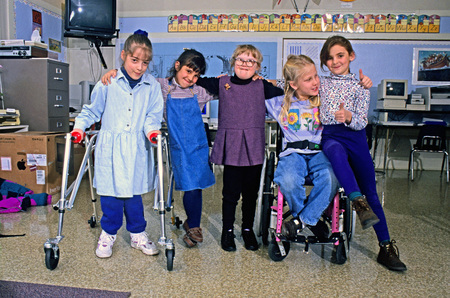Special Education, Autism, Cognitive Disability, ADD/ADHD
Coming Up Short
Nov 10, 2015, by Dawn GibsonIDEA, Special Education, Autism Spectrum Disorders, Teaching
My entire adult life has been devoted to those individuals with special needs, twenty-six of those years, professionally. I have worked with students whose diagnoses span a vast array of medical terms. Some of my students had medical names for their diagnosis that when written out, were as long as my arm, and quite frankly only their mother could pronounce.
While reading, I am reminded of the alarming shortage of qualified special education teachers in this country. I have thought for some time that this was going to happen, but to see it in black and white, in papers all across the country, is disturbing. Here is why I find it so upsetting......
#1 The children that require special services, need and require teachers that are highly qualified in their subject content. In special education that would mean someone who has a degree in special education, understands various disabilities, has a good working knowledge of how to write an excellent Individual Education Plan (IEP) with measurable goals for their students, understands special education law (IDEA) and is both knowledgeable and willing to implement various interventions to assist their students in mastering their goals. I had a professor in college that said something during a class, that always stuck with me. "Although it is important to have excellent teachers in the classroom, typical students are usually able to learn, even if the teacher is poor. That is not true for those students in special education. The typical kids can learn IN SPITE OF their teachers....non-typical students learn BECAUSE of their teachers."
#2 According to the National Coalition on Personnel Shortages in Special Education and Related Services, forty-nine states report a shortage of special education teachers/related service personnel. This is obviously a huge number. I read articles every week of schools that are desperately trying to fill special education positions. The school districts are not always filling positions with the most qualified but with anyone that is willing to fill the position. This leaves the school system to follow up with training/education for these teachers. May I interject? If a person is brought into a special education classroom, but special ed is not where they really want to be, he/she won't stick around for long, and the students will figure out real quick how the teacher feels.
#3 12.3 % of special education teachers leave the profession. That is nearly double the rate of general education teachers. (National Coalition on Personnel Shortages in Special Education and Related Services) Special education teachers burn out quickly. High caseloads, overwhelming paperwork, attempting to figure out interventions that work, legal matters pertaining to the Individuals with Disabilities Education Act and endless meetings are incredibly stressful. A teacher really has to love it, in spite of the challenges.....or she will leave it.
#4 If schools are unable to recruit qualified special education teachers, then they will be forced to hire unqualified individuals, that is if they can find anyone at all! The students will be the ones to suffer. Some schools can't find needed teachers. Just this past week I read of a school system in northern California that had to close their special education program for just this reason. The special ed. students and their families are left to find new programs at other schools, some many miles away from where they live.
#5 Over the past three decades, the increase in cases of autism has been astronomical. If this rate continues, and there is no reason to believe it won't, the need for highly qualified special education teachers will surge. This is not even taking into account all the other myriad number of disabilities that qualify children for special services. If the teachers aren't there, what will happen to special education services? If many teachers are retiring, and fewer college graduates have a degree in special education.....there will be a deficit. What then?
Just today, I read an article by NPR that states exactly what I've been saying for the past several years. In the article, David Pennington an administrator from Oklahoma, believes we are in for a rude awakening. He believes that special ed teachers will look at all the responsibilities and pressure, and conclude it is not worth it.




